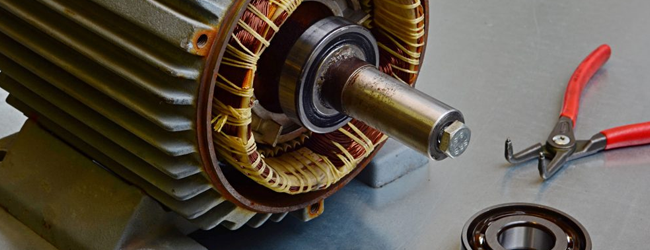Servo motors play a crucial role in various industrial applications, providing precise control and motion to automated machinery. These motors are essential components in robotics, CNC machines, printing presses, and many other systems where accuracy and reliability are paramount. To ensure their optimal performance and longevity, regular servo motor maintenance is essential. In this blog post, we will explore the importance of servo motor maintenance, key maintenance tasks, and best practices for industrial applications.
Importance of Servo Motor Maintenance
Servo motors are subjected to demanding operating conditions, such as high speeds, heavy loads, and continuous operation. Without proper maintenance, these motors can experience various issues, including decreased performance, increased downtime, and ultimately, premature failure. Regular maintenance practices help identify potential problems early on, prevent catastrophic failures, and extend the overall lifespan of the servo motors. Additionally, well-maintained servo motors ensure consistent precision, reducing errors in critical industrial processes.
Key Servo Motor Maintenance Tasks
Lubrication: Proper lubrication is crucial for the smooth operation of servo motors. Lubricating the motor bearings and gears helps reduce friction, heat generation, and wear. Follow the manufacturer’s guidelines regarding lubrication intervals and use high-quality lubricants suitable for the specific motor model.
Cleaning: Servo motors are exposed to various contaminants, such as dust, debris, and moisture, which can affect their performance. Regularly clean the motor surfaces using non-abrasive cleaning agents to remove any buildup or foreign particles. Pay special attention to air vents and cooling fans to ensure proper heat dissipation.
Cable Inspection: Check the motor cables for any signs of wear, fraying, or damage. Damaged cables can cause intermittent electrical connections, leading to motor malfunctions. Replace any damaged cables promptly and ensure proper cable routing to prevent strain or interference.
Calibration and Alignment: Over time, the positioning accuracy of servo motors may drift due to mechanical wear or electrical factors. Perform periodic calibration and alignment procedures as recommended by the manufacturer to maintain precise control and motion accuracy.
Temperature Monitoring: Servo motors generate heat during operation, and excessive heat can degrade their performance and lifespan. Monitor the motor’s temperature using built-in sensors or external devices and ensure that the operating temperatures remain within the recommended range. Adequate ventilation and cooling systems should be in place to dissipate excess heat.
Best Practices for Industrial Applications
Regular Inspection Schedule: Establish a comprehensive maintenance schedule for servo motors based on their usage, operating conditions, and manufacturer recommendations. Adhere to this schedule strictly to identify potential issues and perform preventive maintenance tasks promptly.
Documentation and Record-Keeping: Maintain detailed records of all maintenance activities, including dates, tasks performed, and any observations or abnormalities noted. This documentation helps track the maintenance history of each servo motor, aids troubleshooting efforts, and assists in planning future maintenance.
Training and Expertise: Ensure that the maintenance personnel responsible for servo motor upkeep are adequately trained in the specific maintenance procedures and safety protocols. Stay updated with the latest industry practices, technological advancements, and manufacturer recommendations through training programs or professional development opportunities.
Proactive Troubleshooting: In addition to routine maintenance, develop a proactive troubleshooting approach. Encourage the reporting of any unusual noises, vibrations, or performance variations by equipment operators. Addressing these issues promptly can prevent further damage or unexpected breakdowns.
Conclusion
Servo motors are vital components in industrial applications, providing precise motion control. Proper maintenance practices are key to ensuring their optimal performance, longevity, and reliability. Regular lubrication, cleaning, cable inspection, calibration, and temperature monitoring are essential maintenance tasks. By following best practices and establishing a well-documented maintenance schedule, industrial facilities can minimize downtime,
reduce repair costs, and maintain the efficiency of their servo motor-driven systems. With proactive maintenance, businesses can maximize productivity, minimize disruptions, and enhance overall operational efficiency.
Do you have a servo motor or rotary actuator that requires service? Contact Industrial Service Solutions below, and one of our representative will contact you with service information and shipping instructions. Our expedited service can turn around your repaired unit in as little as 24 hours.


